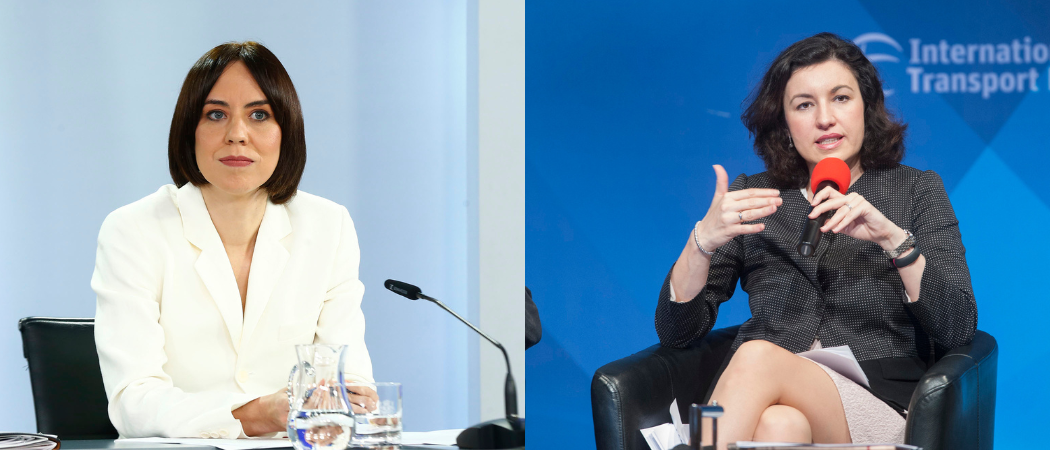Nine research ministers tell research commissioner they want to see “self-standing” future EU research programme

Diana Morant (left), Minister of Science, Innovation and Universities in Spain, and Dorothee Bär, Federal Minister for Research, Technology and Space in Germany. Photo credits: La Moncloa - Gobierno de España / Flickr and International Transport Forum / Flickr
Nine EU research ministers have sent a letter to Ekaterina Zaharieva, the European commissioner responsible for research, backing an independent collaborative research pillar in the next Horizon Europe programme.
Highlighting the value of European collaborative research, the ministers argue that “collaborative research and the principles of competition and excellence must therefore remain the core of an EU funded programme for research and innovation.”
The nine research ministers sent the letter to Zaharieva on July 4. The effort was led by the Spanish and German ministers, the two most active countries in Horizon Europe’s Pillar 2, which supports collaborative research.
Pillar 2’s independence is now at risk due to the European Commission’s push to merge its competitiveness-driven programmes into a single mega-fund.
Last week, leaked draft proposals for the next Horizon Europe and the European Competitiveness Fund revealed a plan to remodel Pillar 2 around the fund’s four priorities: clean transition and industrial decarbonisation; health, bioeconomy and biotechnology; digital; and resilience, defence and space.
Under the new structure, collaborative research programming would be guided by the ECF’s steering mechanism and the Competitiveness Coordination Tool. While it is unclear what exactly these mechanisms are, insiders say the new governance framework would give the Commission more say over priorities, leaving member states in an advisory role.
Related stories:
- Research community positive yet cautious over leaked FP10 proposal
- Commission draft proposal for FP10 leaked
Crucially, member states’ research ministries would lose the influence they have over Pillar 2 programming, which is currently decided by programme committees in which government representatives sit with the Commission.
Like the ministers, the research community is wary of close links between Horizon Europe and the Competitiveness Fund. In a joint statement issued on July 11, 12 research and university associations called for collaborative research and innovation to be anchored in Horizon Europe.
“The two funds must be complementary, not substitutes, to preserve and enhance [Horizon Europe’s] unique mission and impact,” the statement reads.
The ministers’ carefully worded letter similarly suggests that, with collaborative research rooted in Horizon Europe, the Competitiveness Fund should focus on bringing its innovations to the market.
The EU needs a Competitiveness Fund “to consolidate different overlapping funding programmes under direct management and to enhance venture capital funding opportunities for start-ups and scale-ups,” it says.





 A unique international forum for public research organisations and companies to connect their external engagement with strategic interests around their R&D system.
A unique international forum for public research organisations and companies to connect their external engagement with strategic interests around their R&D system.